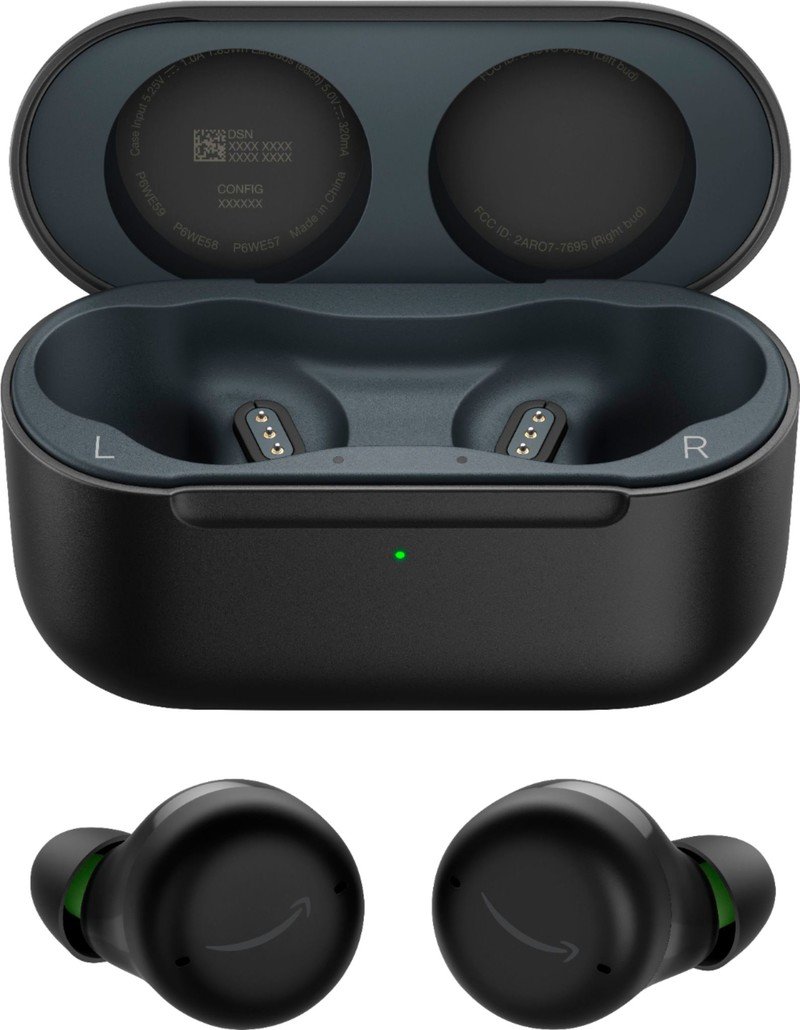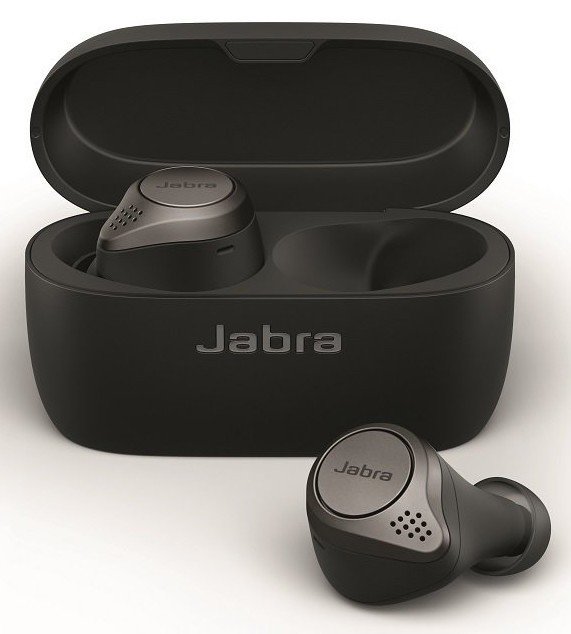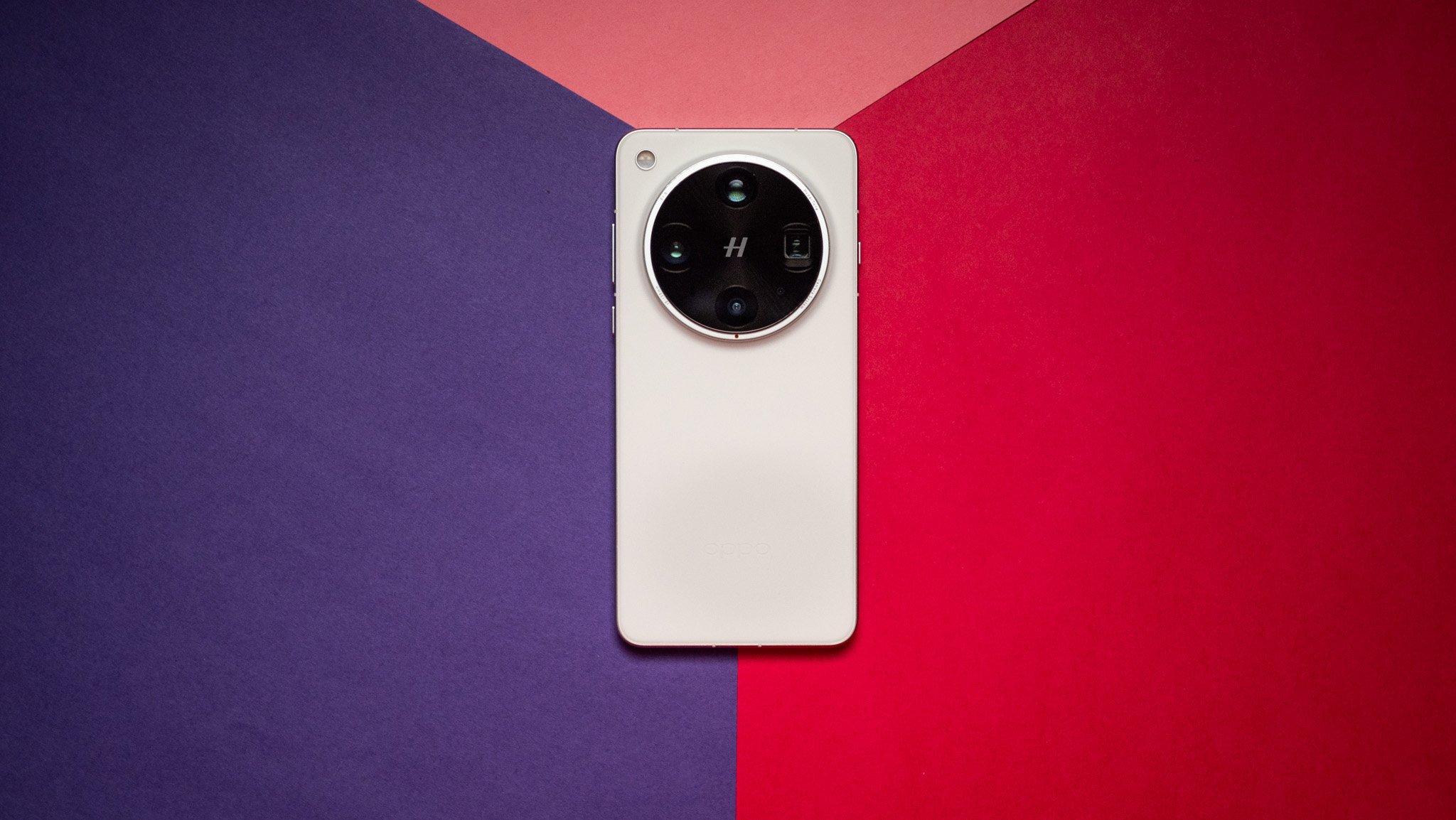Amazon Echo Buds (2nd Gen) vs. Jabra Elite 75t: Which should you buy?
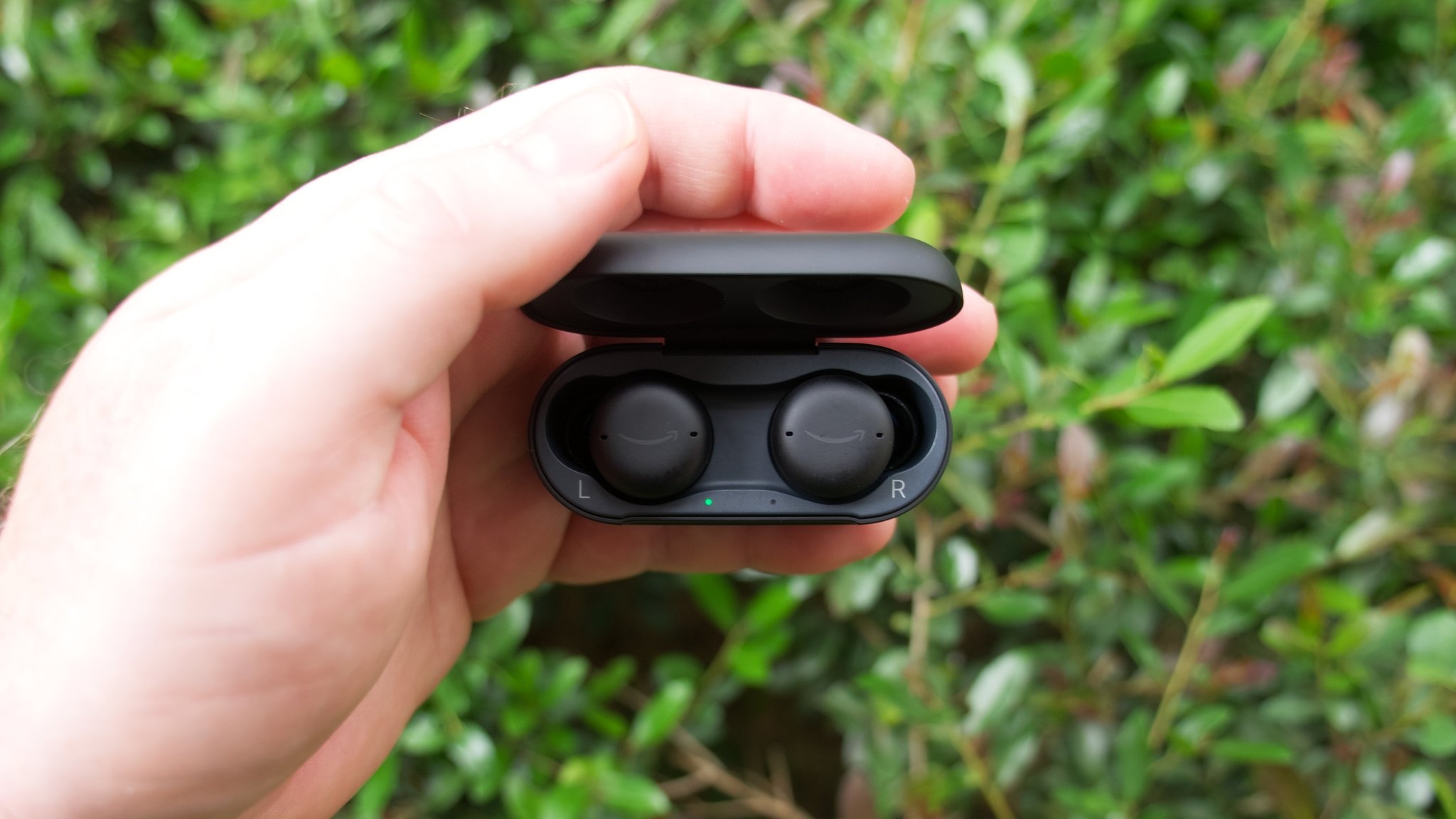
Amazon Echo Buds (2nd Gen)
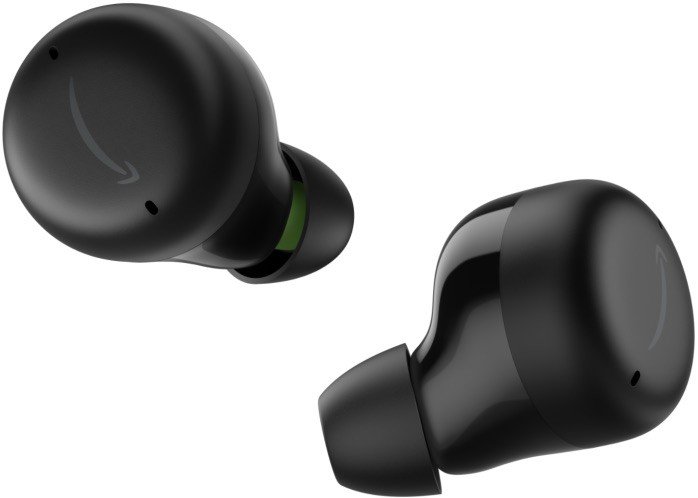
The second-gen Echo Buds gave Amazon another chance to do right by your ears with better design, better sound, and better support. The results shine through in the right ways because they feel like a real departure from what came before. With active noise cancelation (ANC) in tow, plus a more ergonomic focus, it's easy to like wearing these earbuds.
Amazon Echo Buds (2nd Gen)
Echo's best buds
Jabra Elite 75t
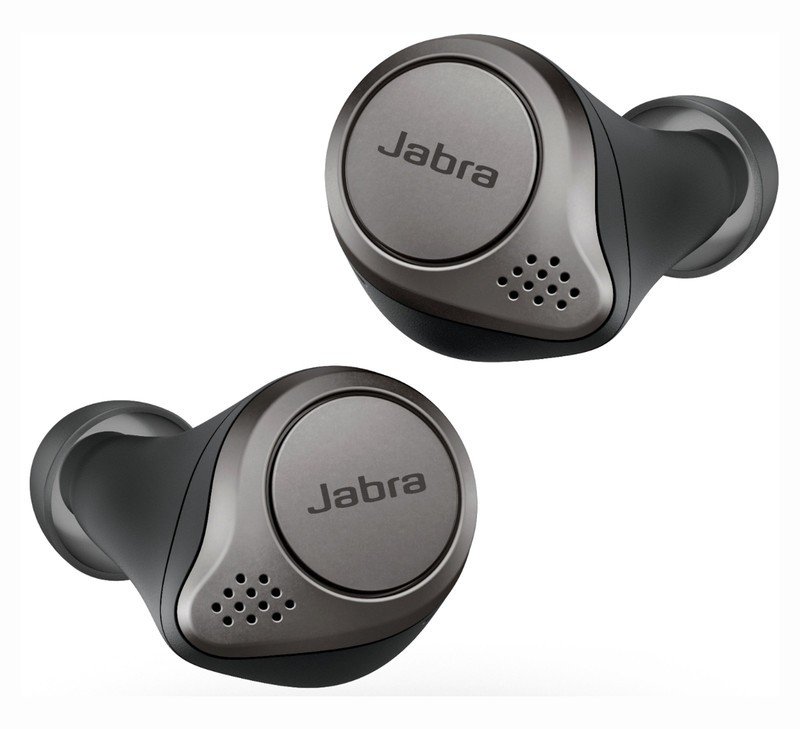
It's hard to argue with how well Jabra did with these earbuds. From the comfortable fit and excellent sound quality, they truly are among the elite of the true wireless earbuds on the market. The support they've received over time only makes them better, including the distinction of being the first pair to receive ANC support through a firmware upgrade.
Jabra Elite 75t
An elite pair
Had Jabra gone up against the debut Echo Buds, it would've very much been a one-sided affair. But a lot's changed since then, and now the Echo Buds (2nd-Gen) have the ability to compete with a pair as elite as the Jabra Elite 75t. You could argue it's not entirely a fair fight, given 18 months between these two coming to market, but that doesn't affect how close this battle really is.
Amazon Echo Buds (2nd Gen) vs. Jabra Elite 75t: What sets them apart?
There are so many pairs you can pit against each other when it comes to true wireless earbuds, and they're often interesting when the respective sides seem so on point. Jabra has set a real tone for doing earbuds right, propelling it into the industry's elite (pun intended). Amazon had no such legacy or even the pedigree to back up any claim that it belonged in the same conversation.
That is until it launched the Echo Buds (2nd-Gen). Clearly learning from some rookie mistakes with the first pair, Amazon addressed some keys on the hardware side that push things in the right direction. Always nice when there's some color, courtesy of a white variant. The smaller form factor makes for a better fit in a wider range of ears, and that matters a lot here because the Elite 75t are already among the most comfortable available. Looking at these two on paper, you notice few discrepancies, and that's very true throughout how they each operate.
| Header Cell - Column 0 | Amazon Echo Buds (2nd-Gen) | Jabra Elite 75t |
|---|---|---|
| Durability | IPX4 | IP55 |
| Bud battery life | 6.5 hours | 7.5 hours |
| Case battery life | 19.5 hours | 20.5 hours |
| Wireless charging case | Yes | No |
| Connectivity | Bluetooth 5.0 | Bluetooth 5.0 |
| Digital assistant support | Alexa, Google Assistant, Siri | Bixby, Google Assistant, Siri |
| Supported audio codecs | SBC, AAC | SBC, AAC |
| Speaker size | 6mm drivers | 6mm drivers |
| Active noise cancelation (ANC) | Yes | Yes (not hybrid) |
| Ambient sound mode | Yes | Yes |
It's actually what's not listed that starts to create some distance between them. Alexa figures very prominently in the second-gen Echo Buds, as it's able to work on its own when paired with a phone that has a data connection. Essentially the earbuds work like any other Echo device, always listening for the wake word to spring into action and do something. It's not an all-or-nothing proposition, though. You don't have to use Alexa as your voice assistant if you don't want to. Google Assistant and Siri are also accessible, except neither of those work in a hands-free way quite like Alexa does.
The Jabra Elite 75t don't play favorites that way. Jabra has leaned toward Alexa before, including with some tighter integration, but it's entirely elective through the company's Sport+ mobile app. It's not the same as what you get with the Echo Buds, though you can use either of the other two assistants in much the same way.
Be an expert in 5 minutes
Get the latest news from Android Central, your trusted companion in the world of Android
When you start to parse through what the list shows, battery life seems pretty close, albeit with a caveat. The Echo Buds can do 6.5 hours when ANC is turned off, whereas it drops down closer to five hours when you leave it on. Jabra has somewhat of unfair advantage because the Elite 75t don't have hybrid ANC onboard, meaning the microphones aren't doing the same amount of legwork. That's why, even if you have ANC on, the Elite 75t are likely to last longer per charge.
Each has a nice case that can deliver an extra three charges, except only the Echo Buds' case can charge wirelessly. This was something Jabra rectified with the Elite 85t, but never included with the 75t, unfortunately.
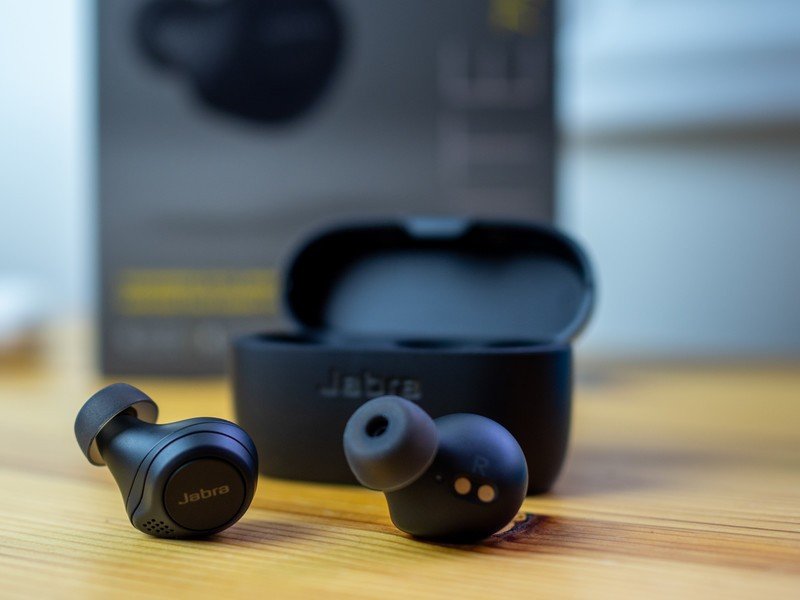
In equal measure, Jabra didn't have to radically change the sound when it made the Elite 75t. It was the comfort, the snugger fit that made it so unique. That's not altogether different from what Amazon did with its second attempt at the Echo Buds. By making them smaller and easier to wear, the audible benefits would likely come through. And they do, with better audio engineering certainly being one reason why.
Cleaner drivers make for a crisper sound that does feel like an audio upgrade over the original Echo Buds. Whether they sound that much better than the Elite 75t is a pretty subjective opinion. Jabra manages to bring out a solid mix of highs, mids, and lows to the sound signature, only made better when you start tinkering with the app's equalizer. Amazon did the same, even if the app's EQ isn't quite as detailed as it could be.
This is also where ANC can make a difference. When they fit well, earbuds can passively block out at least some of the background. With ANC on, it silences almost all of it. Granted, Amazon can't lay claim to the best ANC performance — or even close to it — but it's definitely an improvement from before. Jabra is somewhat shorthanded here, in large part, because the Elite 75t use ANC that isn't baked into the cake, so to speak.
Cleaner drivers make for a crisper sound that does feel like an audio upgrade over the original Echo Buds.
If it's bass you're looking for, either pair will give that to you. The one major difference is in how tight the seal is in your ears. Jabra includes three sets of ear tips, whereas Amazon has four sizes to go with two sets of wings for greater stability. If you can find a combination that really works for you, odds are good the bass will come out with a bigger thump. You can always use the Alexa app's EQ to bump that further if need be.
Despite that, Jabra wins on onboard controls. It's really only because they're buttons on the Elite 75t, rather than the finicky touch-based layout of the Echo Buds. It's an industry-wide issue, as it seems so few can get it right, but when you have actual buttons like Jabra does, false positives are whittled down to almost nothing.
Amazon Echo Buds (2nd Gen) vs. Jabra Elite 75t: Talking the talk
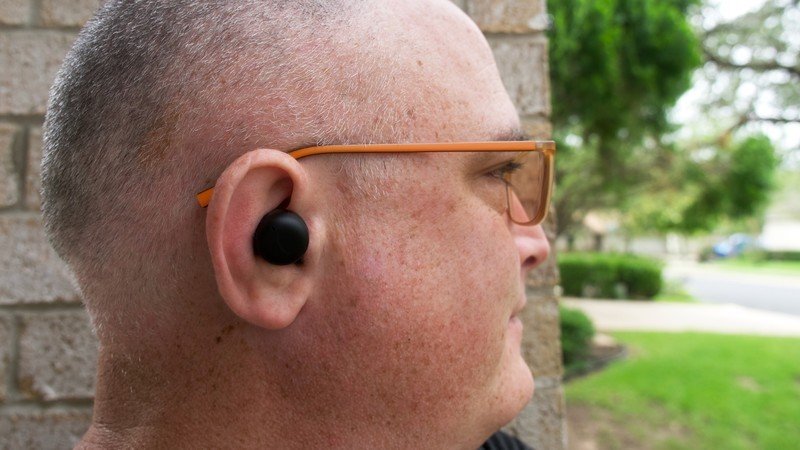
Voice assistant access is old hat with wireless earbuds, but when the functionality expands to an additional level of convenience, it's hard not to notice. Through the Echo Buds, you can tell them what to play on Spotify, right down to the song, artist, or playlist. While not native to these particular earbuds (the original Echo Buds could also do it), they hold an inherent advantage that way.
Despite being very open to Alexa at the start with the Elite 75t, Jabra has since deferred to whatever the paired phone uses instead. If that's Siri or Google Assistant, then there's no way to get Alexa working, too. That's not to say it cripples the Elite 75t, only that it takes away some of that tight integration that makes a voice assistant like Alexa so effective.
Amazon Echo Buds (2nd Gen) vs. Jabra Elite 75t: Which one should you go with?
Jabra laid the groundwork for earbuds like the Echo Buds (2nd-Gen) by showing how to do comfort and sound the right way. The Elite 75t remains one of the best the industry has produced to date, but Amazon has managed to put together a solid package for less money, and that counts.
There's no bad choice between these two when you break it all down. They each offer plenty of strengths with few weaknesses. Both are highly compatible with Android (and iOS) devices and feature solid app support to take them further. It's just that the Echo Buds have better ANC and benefit more from the audio isolation that comes from that feature.

Ted Kritsonis loves taking photos when the opportunity arises, be it on a camera or smartphone. Beyond sports and world history, you can find him tinkering with gadgets or enjoying a cigar. Often times, that will be with a pair of headphones or earbuds playing tunes. When he's not testing something, he's working on the next episode of his podcast, Tednologic.
